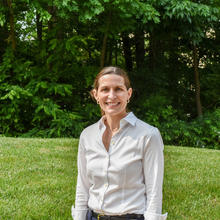- June 6, 2023
Understanding the mysterious resistance to remote work has been a defining theme of Management Professor Kevin Rockmann's research since 2004.
- May 30, 2023
Not all pharmaceutical companies are equally well-suited to surf the sea change that’s happening in healthcare.
- May 22, 2023
How can you convince someone to give you their time or money free of charge? Focus on the head, not the heart.
- May 18, 2023
In China, auto sales rose sharply when Uber came to town. That should make you re-examine received wisdom about the sharing economy.
- May 12, 2023
Our fears of asking questions that feel too sensitive or personal are often overblown. When phrased in the right way, they can lead to better decisions and stronger relationships.
- May 10, 2023
A Mason professor is the sole academic working with the U.S. government in an unprecedented effort to measure environmental-economic activity.
- May 4, 2023
Analysts and top executives are usually not on the same page –or even reading the same book.
- April 28, 2023
Whether it is pressing deadlines, overwork, or employees feeling they are not being supported, anger in a work environment can be unavoidable. Over time, the anger and frustration can compound, causing anger to spread through the entire team or organization, creating what George Mason University expert Mandy O’Neill calls a “culture of anger.”
- April 24, 2023
When next year rolls around, millions of company owners and representatives may be in for a very unpleasant surprise–unless they’re fans of time-consuming paperwork.
- April 19, 2023
The inverse relationship between charity care and trustee compensation highlights curious contradictions in the management practices of some of the biggest non-profit hospitals in the U.S.










